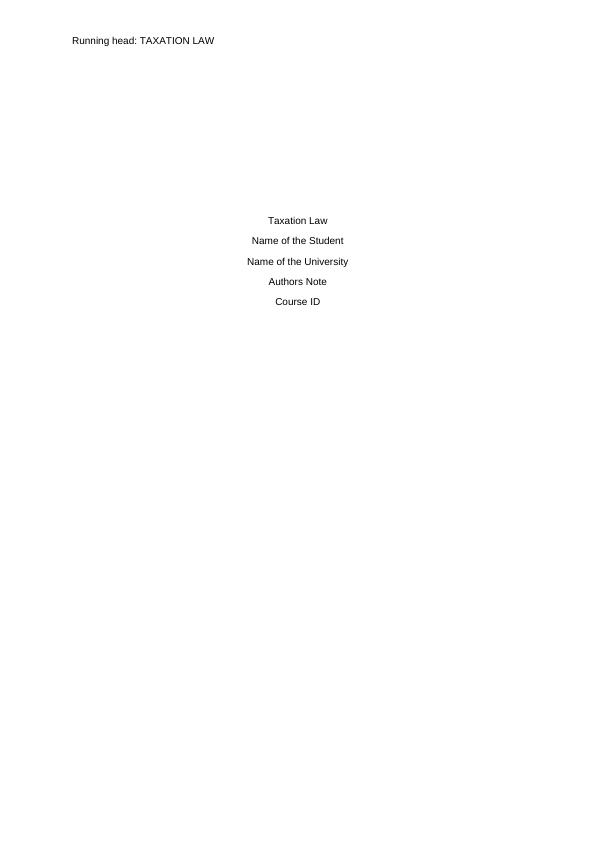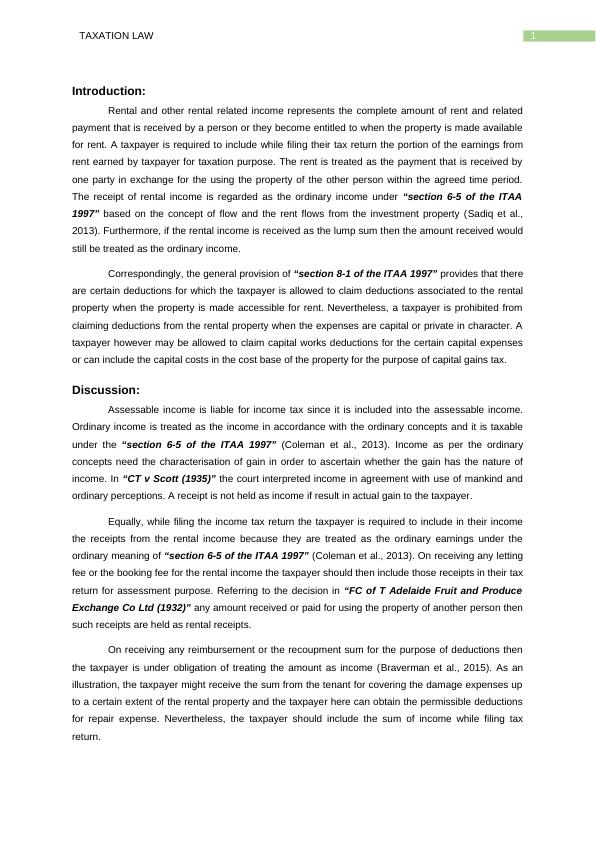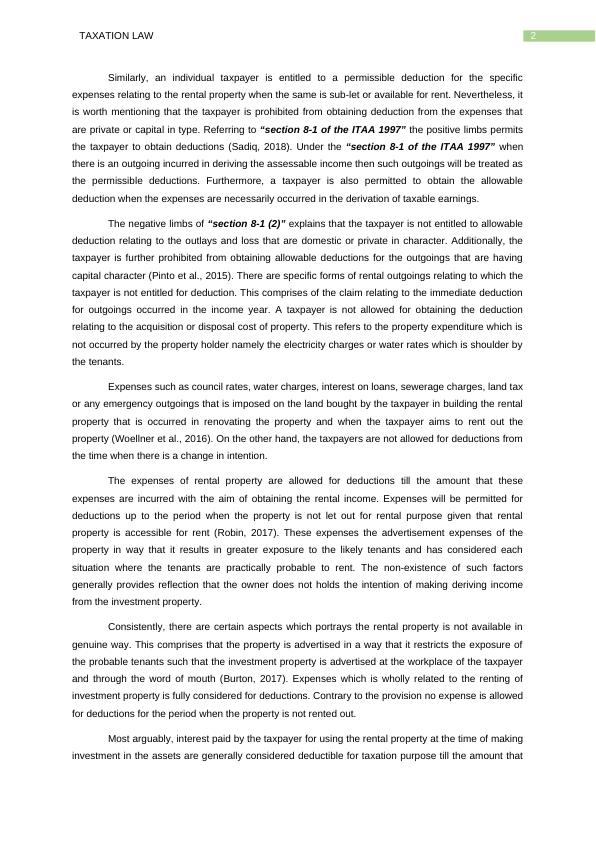Taxation Law: Rental Income and Permissible Deductions
Write an essay on tax deductions for a client who is a management accountant and has recently acquired a rental property.
6 Pages2518 Words316 Views
Added on 2023-06-03
About This Document
This essay discusses the concept of rental income and permissible deductions under Taxation Law. It explains the concept of ordinary income and assessable income. It also discusses the positive and negative limbs of section 8-1 of ITAA 1997. The essay concludes by stating that the expenses incurred should be directed towards the derivation of assessable income to be treated as permissible deductions.
Taxation Law: Rental Income and Permissible Deductions
Write an essay on tax deductions for a client who is a management accountant and has recently acquired a rental property.
Added on 2023-06-03
ShareRelated Documents
End of preview
Want to access all the pages? Upload your documents or become a member.
Taxation Law
|8
|2506
|216
Taxation of Various Income and Deductions for Tom Lee
|6
|1548
|65
Taxation Law: Understanding Assessable Income and Allowable Deductions
|12
|2910
|181
Taxation Law Assessable Earnings Report 2022
|12
|2725
|30
Income and Expense Information
|13
|2894
|21
Taxation Lawws Case Study 2022
|14
|3058
|11



